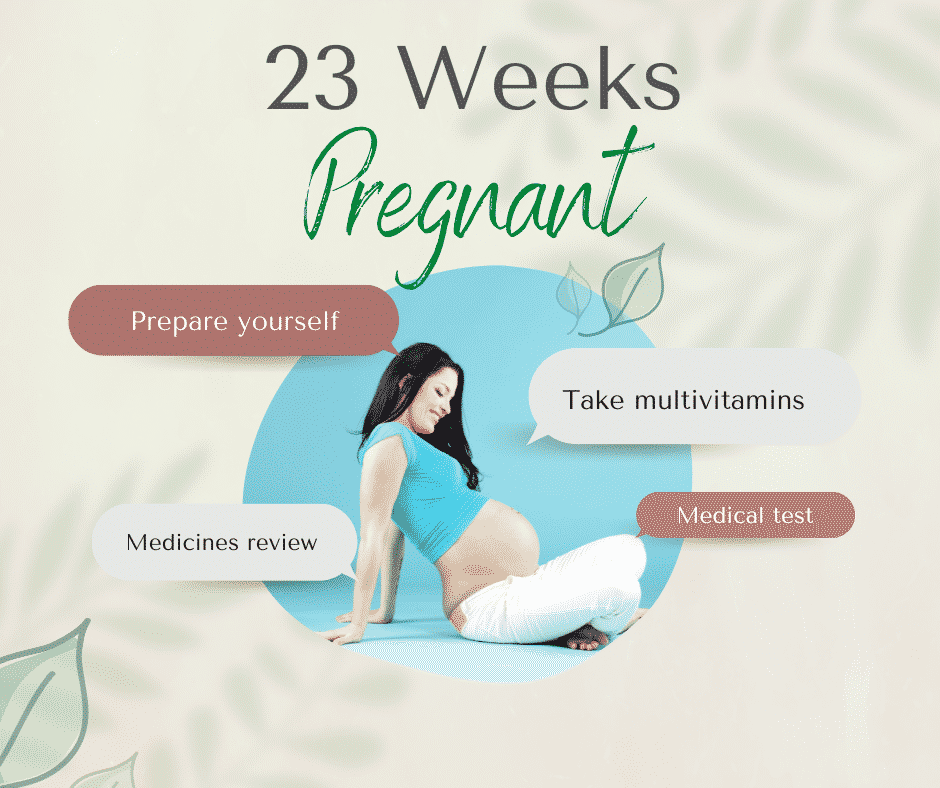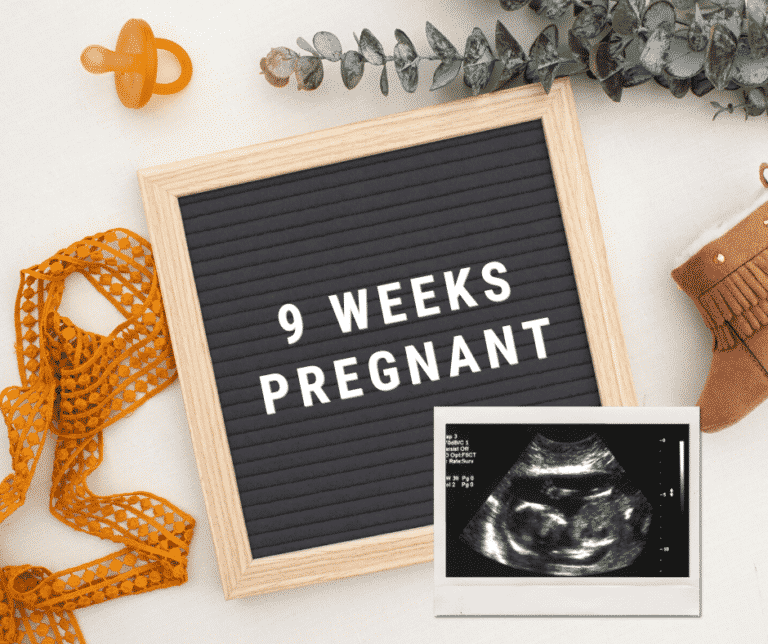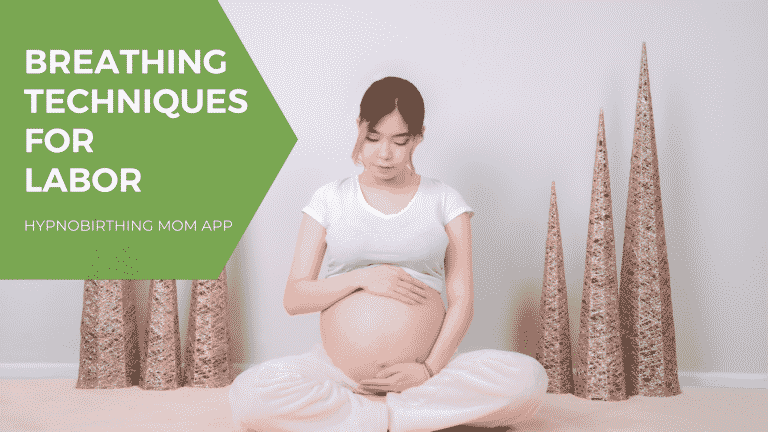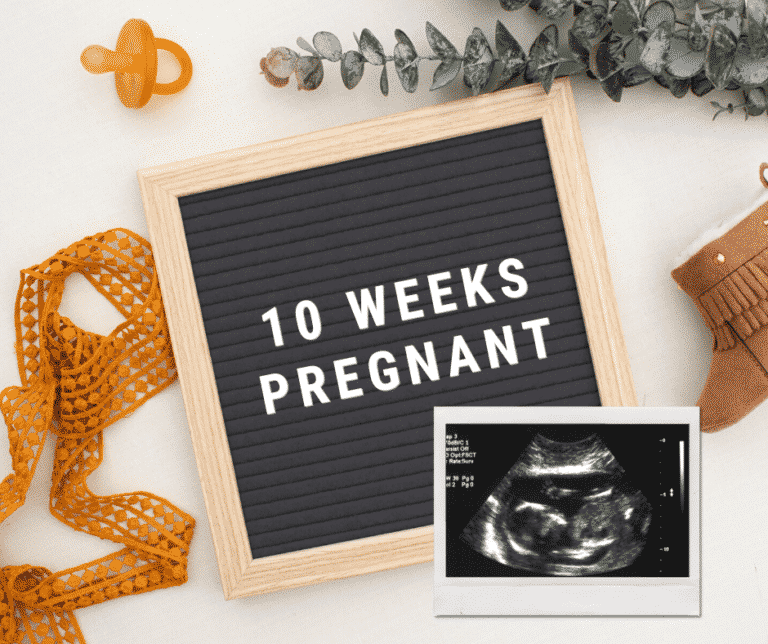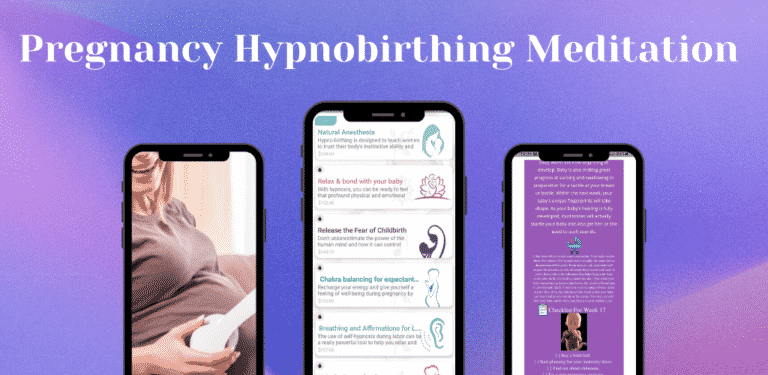23 Weeks Pregnant: Signs, Tips, Symptoms, Baby’s Development
Published on April 11, 2022 – Last Updated on October 18, 2022
Only seven more weeks to go! You may be feeling pretty good in your pregnancy, especially if you’ve been lucky enough to escape morning sickness. Things are starting to get a little bit real, though—you’re probably beginning to think about what you’ll need for your baby and how you’re going to prepare for the big day. Keep reading to learn more about what’s happening with your baby and your body at 23 weeks pregnant.
What to expect during the 23rd week of pregnancy
During the 21 weeks of pregnancy, You may experience some physical and emotional changes. You’re nearing the end of your second trimester, and you may be feeling good. Your energy levels might be up, and you’re probably not feeling as nauseated as you were in the first trimester. You may also start to feel your baby move around this week.
If you haven’t already, you should start thinking about maternity clothes. You may not need them yet, but you’ll want to have them ready when you begin to show. You’ll also want to start stocking up on baby gear and supplies. It’s a good idea to create a registry so that friends and family can buy you some of the things you need.
After Some weeks, You’ll officially enter the 3rd trimester, pregnancy hormones may cause you to have more vivid dreams, and you may start to feel anxious about the upcoming delivery. But overall, you’re probably feeling good—and excited about meeting your little one.
Read more about the 23rd week of pregnancy in our posts: pregnancy week calculator and belly stages of pregnancy week by week.
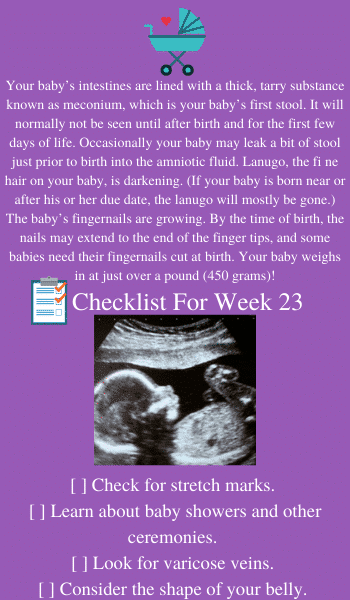
Changes your body is going through
During this week, You notice some changes in your body, like your belly is growing more, and you might feel some indigestion and heartburn. Also, it is normal to have some Braxton-hick contractions, which are basically false labor pains. Read more about contractions : contraction timer, pregnancy contractions timer, contraction counter.
Breast Tendons:
As your breasts grow, the ligaments that support them (Cooper’s ligaments) stretch, which can cause pain in your lower back, armpits, or upper arms.
What you should be feeling
You might have felt your baby move, and if not, you will soon. These are called “quickening.”
Weight Gain:
It would be best if you were gaining about a pound a week at this point.
Leg Cramps:
You might experience muscle cramps in your legs at night. Try stretching before bed and during the day to help relieve some of the discomforts. Also, Sudden Swelling or sometimes slight swelling is normal and can be caused by excess fluid retention, increased blood volume, and the pressure of your growing uterus on your veins. If you have any concerns, then contact your healthcare provider immediately.
Nasal congestion:
This is caused by the extra blood flowing through your vessels and increased pregnancy hormones. So drink lots of fluids, avoid caffeine and alcohol, and use a saline nasal spray to help clear things up.
Amniotic Fluid:
Your baby will continue to swallow and urinate amniotic sac or fluid, which helps form the meconium that will be your baby’s first stool.
Pregnancy Hormones:
The hormones relaxin and progesterone are still hard at work, softening your ligaments and joints in preparation for childbirth. This can cause some discomfort, especially in your lower back and pelvis.
Pregnancy Symptoms
During this week, you Experience the Following Symptoms:
1. Increased fatigue – As your body works harder to support the growing baby, you may feel more tired than usual. Try to get plenty of rest and take breaks during the day to relax.
2. Braxton Hicks contractions – Sporadic, painless contractions may start happening more frequently now. They’re your body’s way of preparing for labor.
3. Increased urination – You may need to go to the bathroom more often now as your uterus begins to press on your bladder.
4. Heartburn or indigestion – The hormones surging through your body can cause these stomach problems. Eat smaller meals and avoid spicy or fatty foods.
5. Nasal congestion – Your nose may be congested thanks to the extra blood flow and mucus production related to pregnancy. Use a saline nasal spray or humidifier to help clear things up.
6. Dizziness or lightheadedness – You may feel slightly lightheaded as your blood pressure drops somewhat during pregnancy. Make sure to drink plenty of fluids and eat regularly to help prevent this.
7. Slight swelling – You may notice a minor bump in your hands, feet, and face as your body retains more fluid. This is normal and should go away after you give birth.
8. Changes in skin pigmentation – Some pregnant women experience changes in the pigmentation of their skin during pregnancy. This can manifest as dark patches on the face, called melasma, or linea nigra, a dark line that runs down the center of the abdomen. These changes are caused by hormonal fluctuations and should disappear after pregnancy.
These are all usual symptoms you may experience during this week of pregnancy.
23 Weeks Fetus
A 23-week fetus is about the size of a grapefruit and is starting to look more and more like a baby. The head is now proportional to the rest of the body, and the eyes begin to move towards the front of the face. The eyelids are also beginning to form, although they remain fused shut. The ears are now in their final position, and the bones in the middle ear are beginning to harden. The body gradually fills out with fat, and the skin becomes less transparent.
Inside your belly, you may be feeling more kicks and jabs as your baby starts to move around more. The fetus is now able to swallow small amounts of amniotic fluid, which helps to lubricate the digestive system and develop swallowed muscles. By 23 weeks, the fetus is fully developed enough that it can survive outside the womb, although it would require extensive medical care. While 23 weeks may seem early, it is actually late in development for many babies born prematurely. With modern medical advances, 23-week-old babies have a much better chance of survival than ever before. As a result, 23-week-old fetuses deserve the same protections as any other person.
Baby’s Development at 23 weeks pregnant:
During pregnancy week 23, the baby’s brain development, muscles, and lungs continue to develop. The baby is now about the size 14 inches long and weighs almost 2 pounds. Eyelashes and eyebrows are fully formed, and the baby’s nails have reached the ends of their fingers and toes. Here You can see more details below!
Baby’s Head:
The baby’s head continues to grow in proportion to the rest of the body. The fontanelle, or soft spot on the top of the head, closes as the bones in the skull fuse together.
Baby’s Muscles:
The baby’s muscles are getting stronger and more coordinated. This week, the baby can curl its toes and make a fist.
Baby’s Lungs:
The baby’s lungs are still developing, but they are almost mature enough to breathe independently.
Baby’s Eyes:
The baby’s eyes can now focus on objects up close.
Baby’s Taste and Smell:
The baby’s taste buds are developed, and they can now distinguish between sweet, sour, salty, and bitter tastes. The sense of smell is also developed.
Baby’s Nails:
The baby’s nails have reached the ends of their fingers and toes.
Baby’s Movements:
The baby is moving around a lot now, and you may be able to feel the kicks and movements.
Tips for Healthy Pregnancy: 23 weeks pregnant
At Pregnancy Week 23, You have to take care of yourself and the baby inside you. So we brought a list of tips for a healthy pregnancy.
1. Eat for two: You might have heard this one before, but it’s worth repeating. You are eating for two now, and you need to make sure that you are getting enough nutrients to support yourself and your growing baby.
2. Get plenty of rest: This is easier said than done, especially when you’re getting close to your due date. But try to get as much sleep as possible, especially in the third trimester.
3. Exercise: Staying active is essential for you and your baby. Try to get in at least 30 minutes of exercise each day.
4. Drink plenty of water: This is especially important when it’s easy to become dehydrated in the summer months.
5. Avoid excessive caffeine: Too much caffeine can be harmful to you and your baby. Try to limit yourself to one or two cups of coffee a day.
6. Avoid alcohol and cigarettes: This should go without saying, but it’s essential to avoid drinking and smoking during pregnancy.
7. Take your vitamins: Make sure to take your prenatal vitamins every day. They provide essential nutrients for you and your baby.
Tips For Partners:
If You are a partner and Your wife is pregnant, you have some responsibility to take care of her. Here are some tips for partners which will help you!
1. Be supportive: This is a difficult time for your partner, and she needs all the support she can get. Whether it’s helping out around the house or just being there to listen, do whatever you can to make things easier for her.
2. Attend doctor’s appointments: It’s essential to be involved in your partner’s pregnancy, and attending doctor’s work is a great way to do that. You can ask questions and get information about what to expect.
3. Be patient: Your partner may be feeling a bit hormonal, and things may not always go according to plan. Try to be understanding and patient with her during this time.
4. Help out around the house: With a new baby on the way, your partner will have her hands full. Offer to help out around the house as much as possible so she can take it easy.
5. Take him to Parks: You can take your partner to parks for fresh air and exercise. This will help her to stay healthy and fit during pregnancy.
We hope these tips are helpful for you and your partner during this particular time.
Prenatal Visit:
If You are 5 months pregnant and Close to the 6th Month, you have to go for Prenatal Visit. You have to visit multiple times before that baby’s arrival. Discuss Your Health issues, stretch marks, medications, vaginal discharge, sex life, and more with your health care provider during Prenatal visits.
Your doctor will check your blood pressure, weight, and urine during a prenatal visit.
FAQs
Is the baby fully developed at 23 weeks pregnant?
No, the baby is still developing during week 23 of pregnancy. The baby’s brain, muscles, and lungs continue to grow, and the
How many months are 23 weeks pregnant?
Pregnancy weeks are counted from the first day of your last menstrual period, so week 23 is about 5 months pregnant.
What is the baby’s position at 23 weeks?
At 23 weeks pregnant, the baby is usually in a head-down position.
Other Pregnancy Weeks:
- 1 Week Pregnant
- 2 Weeks Pregnant
- 3 Weeks Pregnant
- 4 Weeks Pregnant
- 5 Weeks Pregnant
- 6 Weeks Pregnant
- 7 Weeks Pregnant
- 8 Weeks Pregnant
- 9 Weeks Pregnant
- 10 Weeks Pregnant
- 11 Weeks Pregnant
- 12 Weeks Pregnant
- 13 Weeks Pregnant
- 14 Weeks Pregnant
- 15 Weeks Pregnant
- 16 Weeks Pregnant
- 17 Weeks Pregnant
- 18 Weeks Pregnant
- 19 Weeks Pregnant
- 20 Weeks Pregnant
- 21 Weeks Pregnant
- 22 Weeks Pregnant
- 24 Weeks Pregnant
- 25 Weeks Pregnant
- 26 Weeks Pregnant
- 27 Weeks Pregnant
- 28 Weeks Pregnant
- 29 Weeks Pregnant
- 30 Weeks Pregnant
- 31 Weeks Pregnant
- 32 Weeks Pregnant
- 33 Weeks Pregnant
- 34 Weeks Pregnant
- 35 Weeks Pregnant
- 36 Weeks Pregnant
- 37 Weeks Pregnant
- 38 Weeks Pregnant
- 39 Weeks Pregnant
- 40 Weeks Pregnant
- Birth Plan
- Baby Due Date Calculator
- EDD Calculation
- how many weeks pregnant I am

